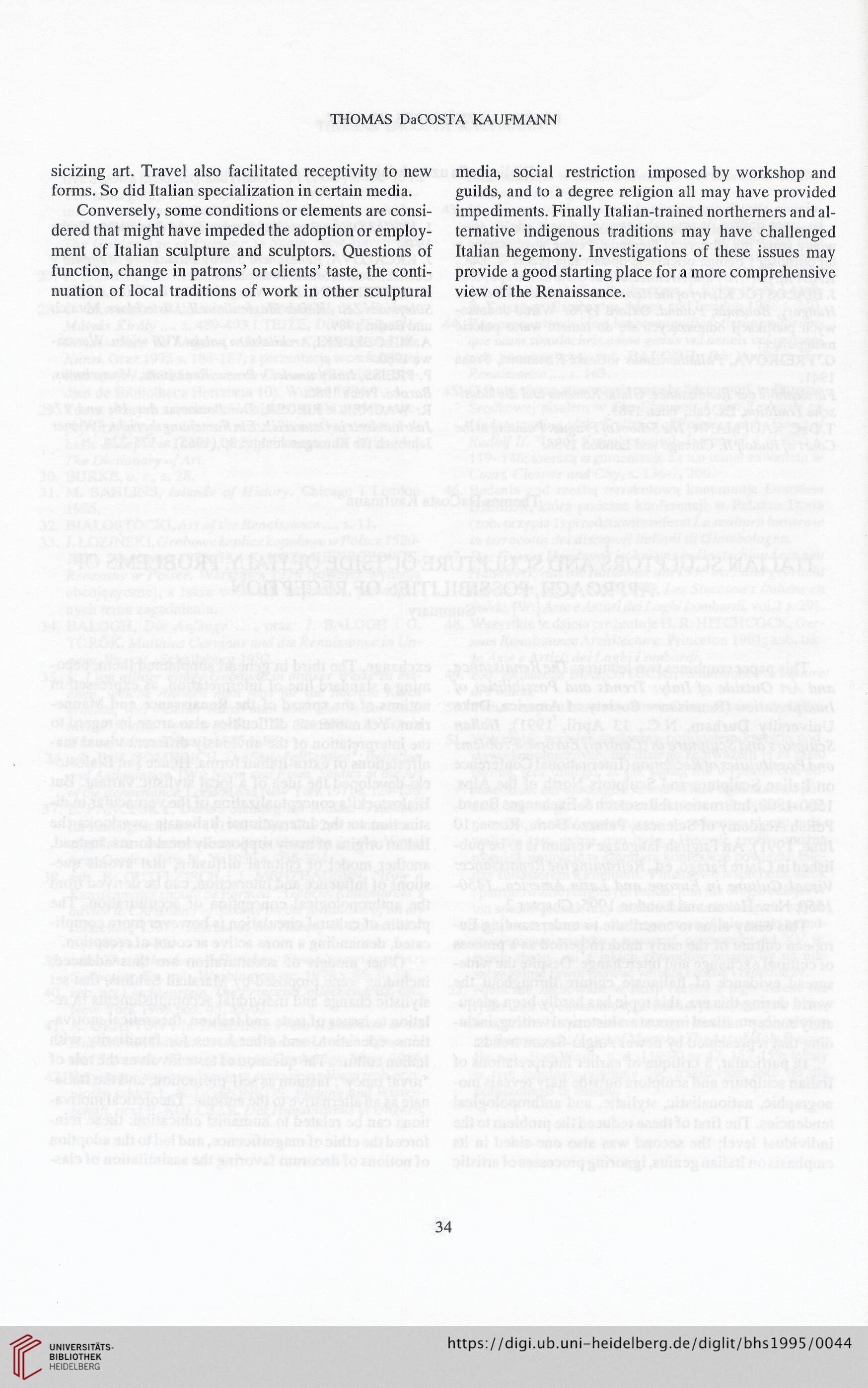Instytut Sztuki (Warschau) [Hrsg.]; Państwowy Instytut Sztuki (bis 1959) [Hrsg.]; Stowarzyszenie Historyków Sztuki [Hrsg.]
Biuletyn Historii Sztuki
— 57.1995
Zitieren dieser Seite
Bitte zitieren Sie diese Seite, indem Sie folgende Adresse (URL)/folgende DOI benutzen:
https://doi.org/10.11588/diglit.48918#0044
DOI Heft:
Spis Treści
DOI Artikel:Kaufmann, Thomas DaCosta: Rzeźba i rzeźbiarze włoscy poza Italią. Problemy interpretacji i możliwości recepcji
DOI Seite / Zitierlink:https://doi.org/10.11588/diglit.48918#0044
THOMAS DaCOSTA KAUFMANN
sicizing art. Travel also facilitated receptivity to new
forms. So did Italian specialization in certain media.
Conversely, some conditions or elements are consi-
dered that might have impeded the adoption or employ-
ment of Italian sculpture and sculptors. Questions of
function, change in patrons’ or clients’ taste, the conti-
nuation of local traditions of work in other sculptural
media, social restriction imposed by workshop and
guilds, and to a degree religion all may have provided
impediments. Finally Italian-trained northemers and al-
temative indigenous traditions may have challenged
Italian hegemony. Investigations of these issues may
provide a good starting place for a morę comprehensive
view of the Renaissance.
34
sicizing art. Travel also facilitated receptivity to new
forms. So did Italian specialization in certain media.
Conversely, some conditions or elements are consi-
dered that might have impeded the adoption or employ-
ment of Italian sculpture and sculptors. Questions of
function, change in patrons’ or clients’ taste, the conti-
nuation of local traditions of work in other sculptural
media, social restriction imposed by workshop and
guilds, and to a degree religion all may have provided
impediments. Finally Italian-trained northemers and al-
temative indigenous traditions may have challenged
Italian hegemony. Investigations of these issues may
provide a good starting place for a morę comprehensive
view of the Renaissance.
34




